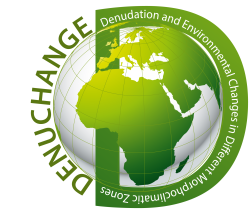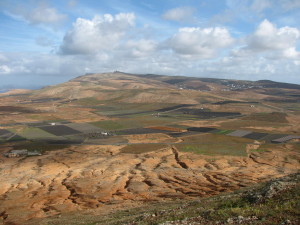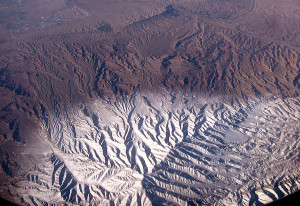DENUCHANGE Working Group

Fox Glacier, New Zealand (Photo by Katja Laute)
WG Chair:
Prof. Zbigniew Zwoliński – Poznań (Poland) e-mail
WG Co-Chair:
Dr. Nurit Shtober-Zisu – Haïfa (Israel) e-mail
Secretary:
Dr. Eliza Placzkowska – Warsaw (Poland) e-mail
Past Chair:
Achim Beylich (Norway)
Denudation and Environmental Changes in Different Morphoclimatic Zones (DENUCHANGE)
Significance of the Working Group
There is general agreement that global environmental changes will have significant effects on Earth surface systems. The question how global environmental changes will affect our landscapes and the way we interact with it is therefore of highest importance (Slaymaker et al., 2009). Denudation, including both chemical and mechanical processes, is of high relevance for Earth surface and landscape development and the transfer of solutes, nutrients and sediments from headwater system through main stem of drainage basin systems to the world oceans. Denudation is controlled by a range of environmental drivers and can be significantly affected by human activity.
The better understanding of possible effects of ongoing and accelerated environmental changes on present-day denudation requires systematic and quantitative studies on the actual drivers of denudational processes in differentiated landscape controls. Only if we have an improved knowledge of drivers, mechanisms and rates of contemporary denudational processes across a range of different selected climatic environments, possible effects of global environmental changes on denudation can be better assessed. Special focus must be given to selected morphoclimatic zones that react particularly sensitive to ongoing climatic changes and human activities.
Environmental drivers and rates of solute and solid fluxes in largely undisturbed cold climate environments have been analyzed in the I.A.G. / A.I.G. Working Group SEDIBUD (2005 – 2017) (Beylich et al., 2016). However, a systematic geomorphologic comparison of present-day denudation rates in different defined climatic zones combined with a coordinated analysis and compilation of the respective key controls of denudation that is presently occurring in the different selected morphoclimatic settings is still largely missing.
The working group on Denudation and Environmental Changes in Different Morphoclimatic Zones (DENUCHANGE) (2017 – 2021) can help to close this still existing key knowledge gap and shall contribute to a better understanding of the possible effects of global environmental changes on contemporary Earth surface systems. It builds on existing data and material (e.g., Vörösmarty and Fekete, 2000; Meybeck et al., 2003; Milliman and Farnsworth, 2011; Beusen et al., 2016; Beylich et al., 2016) and will develop and/or make use of relevant links and synergies with related parts of other current (Tropical Rivers, Landform Assessment for Geodiversity) or past (Large Rivers, Small Catchments, Arid Regions, Global Change) I.A.G. / A.I.G. working groups.
Aims and objectives:
The main aims and objectives of the working group are to:
- Define and select a range of different morphoclimatic zones that react particularly sensitive to ongoing climate change and human activities;
- Provide a systematic quantitative analysis (detailed compilation and comparison) of chemical and mechanical denudation rates in defined drainage basin systems in these different selected morphoclimatic zones worldwide;
- Provide a coordinated and integrated analysis and compilation of the respective key drivers of contemporary denudation occurring under the various present-day morphoclimates;
- Define and develop denudational models for different spatial scales of drainage basins and morphoclimatic zones;
- Define the morphometric signature of denudational processes for different spatial scales of drainage basins and morphoclimatic zones;
- Address the key question how climate changes are affecting contemporary denudation rates in different morphoclimatic zones;
- Address the key question how human activity is affecting contemporary denudation rates in different morphoclimatic zones.
DENUCHANGE builds on the activities and the existing group of scientists from the SEDIBUD working group (2005 – 2017) and:
- Brings together various groups of geomorphologists working on denudation in different morphoclimatic zones;
- Provides a multinational and interdisciplinary forum for scientists from the bio-geophysical disciplines applying a wide range of different methods and techniques for analyzing denudational processes and denudation rates in different morphoclimatic zones.
Key activities and products of the working group will include:
- The organization of annual working group workshops in 2018 – 2021;
- The organization of scientific sessions at relevant international conferences (e.g., IAG/AIG, AGU, EGU) in 2018 – 2021;
- The publication of journal special issues connected to these annual workshops and conference scientific sessions;
- The conception, preparation and publication of a synthesis book on Denudation and Environmental Changes in Different Morphoclimatic Zones.
Steering Committee and Core Group members:
Dr. Antonio Cendrero (Spain)
Dr. Piotr Cienciala (USA)
Prof. Francesco Comiti (Italy)
Dr. Marta Della Seta (Italy)
Dr. John C. Dixon (USA)
Dr. Luis M. Forte (Argentina)
Dr. Joanna Gudowicz (Poland)
Prof. Jasper Knight (South Africa)
Dr. Katja Laute (Norway)
Dr. Dongfeng Li (Singapore)
Dr. Luca Mao (UK) (Co-Chair 2017-2022)
Prof. Małgorzata Mazurek (Poland)
Dr. Ana Navas (Spain)
Dr. Eliza Placzkowska (Poland) (Secretary 2022-2026)
Dr. Olimpiu Pop (Romania)
Prof. Juan Remondo (Spain)
Dr. Nurit Shtober-Zisu (Israel) (Co-Chair 2022-2026)
Prof. Zbigniew Zwoliński (Poland) (Co-Chair 2017-2022, Chair 2022-2026)
References cited:
Beusen, A.H.W., Bouwman, A.F., Van Beek, L.P.H., Mogollón, J.M. and Middelburg, J.J. (2016). Global riverine N and P transport to ocean increased during the 20th century despite increased retention along the aquatic continuum. Biogeosciences 13, 2441-2451.
Beylich, A.A., Dixon, J.C. and Zwolinski, Z. (Eds.) (2016). Source-to-Sink Fluxes in Undisturbed Cold Environments. Cambidge University Press, Cambridge. 408pp.
Meybeck, M., Laroche, L., Dürr, H.H. and Syvitski, J.P.M. (2003). Global variability of daily total suspended solids and their fluxes in rivers. Global and Planetary Change 39, 65-93.
Milliman, J.D. and Farnsworth, K.L. (2011). River Discharge to the Coastal Ocean. A Global Synthesis. Cambridge University Press, Cambridge. 384pp.
Slaymaker, O., Spencer, T. and Embleton-Hamann, C. (Eds.) (2009). Geomorphology and Global Environmental Change. Cambridge University Press, Cambridge. 434pp.
Vörösmarty, C.J. and Fekete, B.M. (2000). Global system of rivers: Its role in organizing continental land mass and defining land-to-ocean linkages. Global Biogeochemical Cycles 14(2), 599-621.
Last WG Annual Reports:
|
Activities 2023
Activities 2022
Activities 2021
Activities 2020
Activities 2019
Activities 2018
|


